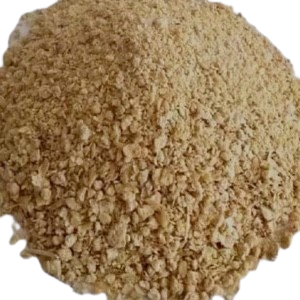Unveiling the Nutritional Treasure Trove: Soya Bean Meal

Introduction: In recent years, soya bean meal has emerged as a nutritional superstar in the world of plant-based foods. Renowned for its exceptional nutritional value and versatility, this humble legume has become a staple ingredient in various cuisines worldwide. In this article, we delve into the nutritional composition, health benefits, culinary applications, and environmental significance of soya bean meal, shedding light on its immense value in modern diets.
Nutritional Composition: Soya bean meal is celebrated for its impressive nutritional profile, making it a powerhouse of essential nutrients. Rich in plant-based protein, it provides all nine essential amino acids crucial for muscle repair, growth, and overall body function. Additionally, soya bean meal is a significant source of dietary fiber, promoting digestive health and aiding in weight management. It also contains essential vitamins such as folate, vitamin K, and various B vitamins, along with minerals like iron, calcium, magnesium, and potassium.
Health Benefits: Incorporating soya bean meal into one’s diet offers a multitude of health benefits. Firstly, its high protein content makes it an excellent alternative to animal protein, particularly for vegetarians, vegans, and individuals seeking to reduce their intake of meat. Consuming soya bean meal may help lower cholesterol levels, thereby reducing the risk of heart disease and improving cardiovascular health. Moreover, research suggests that regular consumption of soya bean meal may alleviate menopausal symptoms, promote bone health, and contribute to weight management by enhancing satiety and controlling appetite.
Culinary Versatility: One of the most appealing aspects of soya bean meal lies in its culinary versatility. It can be processed into various forms, each offering unique textures and flavors suitable for diverse culinary applications. Soya flour, for instance, is commonly used in baking to add protein and moisture to bread, cakes, and other baked goods. Soya milk serves as a nutritious dairy-free alternative in beverages, breakfast cereals, and cooking. Tofu, a soybean curd, is prized for its ability to absorb flavors and adapt to different cooking methods, making it a staple in vegetarian and vegan cuisine. Similarly, tempeh, another soybean product, boasts a nutty flavor and firm texture, making it ideal for grilling, stir-frying, or marinating.
Environmental Significance: Beyond its nutritional benefits, soya bean meal plays a pivotal role in sustainable agriculture and environmental conservation. Soybeans are nitrogen-fixing legumes that enhance soil fertility and reduce the need for synthetic fertilizers, promoting soil health and sustainability. Furthermore, soybean cultivation requires less water and land compared to traditional livestock farming, making it a more environmentally friendly option. Additionally, soya bean meal serves as a valuable source of animal feed, contributing to the efficiency of livestock production and reducing the ecological footprint of meat and dairy industries.
Conclusion: Soya bean meal stands as a testament to the nutritional richness, culinary versatility, and environmental sustainability of plant-based foods. With its exceptional nutritional composition, health benefits, and culinary adaptability, soya bean meal continues to enrich diets, promote well-being, and foster sustainability in food production systems worldwide. As we embrace the myriad benefits of this remarkable legume, we pave the way for a healthier, more sustainable future for generations to come.
